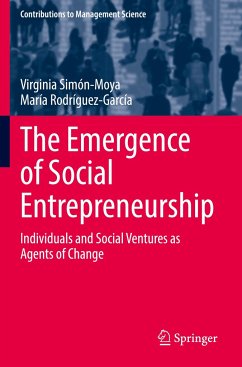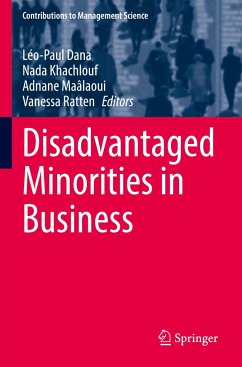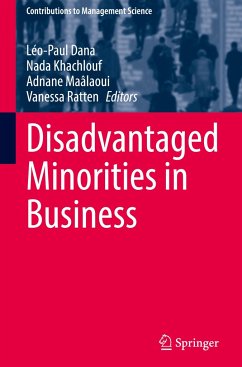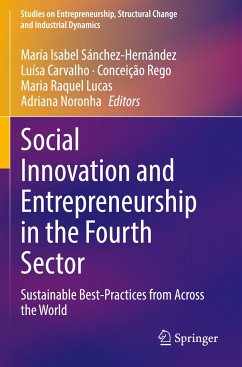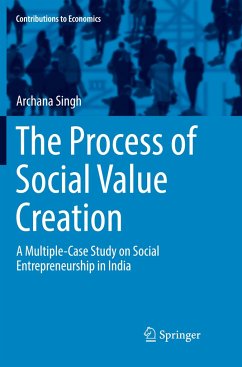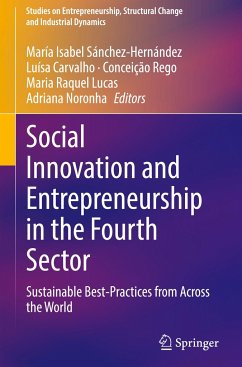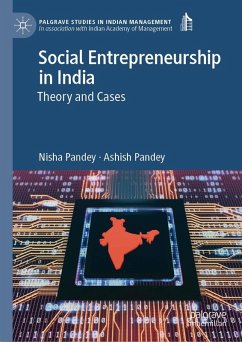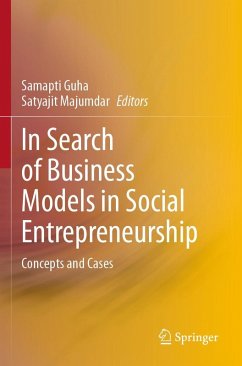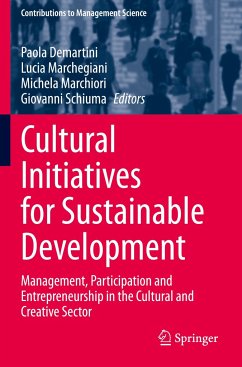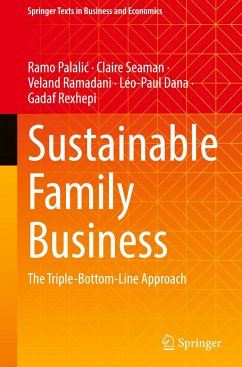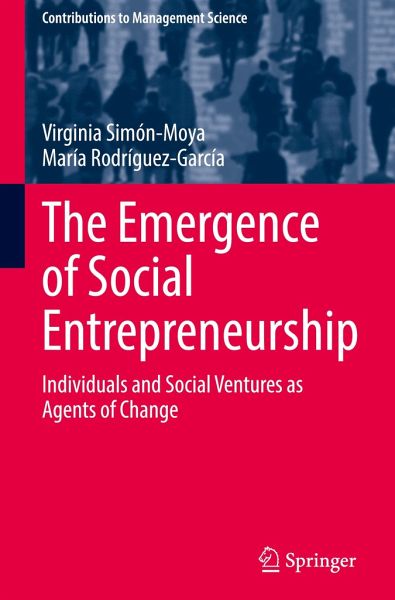
The Emergence of Social Entrepreneurship
Individuals and Social Ventures as Agents of Change
Versandkostenfrei!
Versandfertig in 6-10 Tagen
76,99 €
inkl. MwSt.
Weitere Ausgaben:

PAYBACK Punkte
38 °P sammeln!
The rise of hybrid ventures is proof that another way of doing business is possible. Many developments in the last 15 years highlight the significance of social entrepreneurship: the 2006 Nobel Peace Prize to Grameen Bank, the efforts of scholars in studying social ventures, and the new academic programs at Ivy League universities, as well as the creation of indices such as the United Nations Human Development Index to measure non-economic issues. This book portrays these as strong indicators to support the development and sustenance of a market-based economy that also imbibes social progress ...
The rise of hybrid ventures is proof that another way of doing business is possible. Many developments in the last 15 years highlight the significance of social entrepreneurship: the 2006 Nobel Peace Prize to Grameen Bank, the efforts of scholars in studying social ventures, and the new academic programs at Ivy League universities, as well as the creation of indices such as the United Nations Human Development Index to measure non-economic issues. This book portrays these as strong indicators to support the development and sustenance of a market-based economy that also imbibes social progress and human values.
This book emphasizes that awareness of the conditions under which social start-ups emerge is crucial. The authors provide a thorough and empirical analysis of the emergence of social entrepreneurship using the Global Entrepreneurship Monitor (GEM) data as well as case studies from practice. From the perspective of individuals, they examine the most importantcharacteristics of social entrepreneurs, and from a macro perspective, social ventures are studied as agents of change. A handpicked collection of successful cases of social ventures also provides the reader with an awareness of the best practices.
This book emphasizes that awareness of the conditions under which social start-ups emerge is crucial. The authors provide a thorough and empirical analysis of the emergence of social entrepreneurship using the Global Entrepreneurship Monitor (GEM) data as well as case studies from practice. From the perspective of individuals, they examine the most importantcharacteristics of social entrepreneurs, and from a macro perspective, social ventures are studied as agents of change. A handpicked collection of successful cases of social ventures also provides the reader with an awareness of the best practices.





